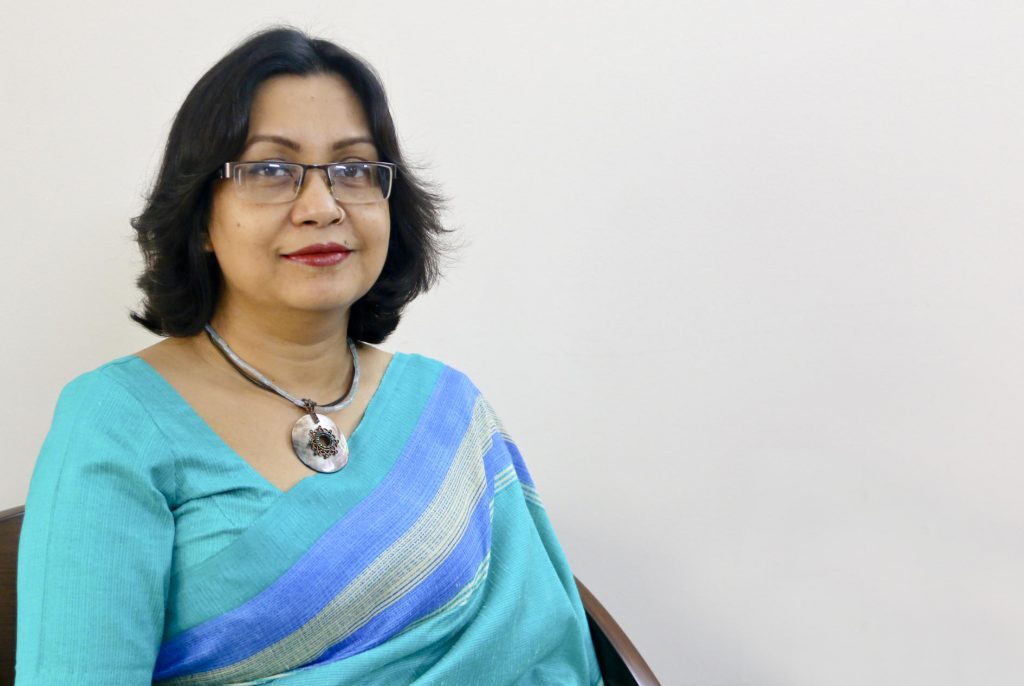Story reprinted with permission of WaterAid
As director in Bangladesh, Hasin Jain oversees WaterAid’s largest and longest-running country program. With the death toll and the number of COVID-19 cases in the country climbing, she answers questions about the situation on the ground and WaterAid’s response.
How bad is the situation in Bangladesh? Are people concerned?
The real-life situation is much worse than the figures show. The rural population does not comprehend the risks. They still think gathering at the tea stalls and gossiping is OK. They don’t understand the seriousness.
What is being done now that the country is in lockdown?
Now, our focus is on rural areas and underserved urban settlements. To reach rural populations, we’re using community radio stations and trained volunteers. While ensuring the safety of our staff and partners, we’re still providing handwashing facilities at the entrance to 157 of Dhaka’s most densely crowded neighborhoods, serving as many as half-a-million living in poverty.
How can people living without clean water or soap comply with public health advice around handwashing?
WaterAid Bangladesh has suggestions for as many as 20 different low-cost options for handwashing, including inserting a tap into an earthen pot to convert it into a washing station. If people are concerned about not having enough soap or soap being stolen, we recommend people pre-mix the soap and use soapy water for washing hands.
What about recommendations for social distancing?
Social distancing was never a possibility here, particularly in low-income urban areas. How are people supposed to manage if they sometimes have as many as nine in one room? Early detection is the only solution.
What technology can be used to help prevent the spread of the virus?
We’re working with the government’s Institute for Epidemiological Disease Control and Research to develop a mobile phone detection app. We hope this will be able to assist in the early detection of symptoms, to prompt quarantine and prevent further contamination. A pilot project will be conducted in one of the densest, most impoverished pockets of Dhaka.
For more on WaterAid’s COVID-19 response, visit: https://www.wateraid.org/us/wateraids-covid-19-response
